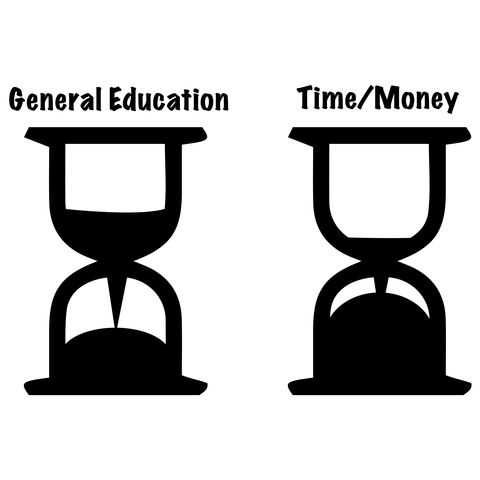Why Are General Education Courses Required in College?
The basic reasons to take general education courses are numerous, but they all boil down to the same thing: ensuring your employability, establishing high expectations, and building a foundation for lifelong learning. Here are some of the reasons you should consider taking them in college. Read on for more information! And don’t forget to consider taking remedial courses as a way to improve your grades. And if you’re still not sure, try these tips!
Basic knowledge
While some of the General Education curriculum requirements are common to all degree programs, some are unique to particular universities. For instance, the college requires students to take courses in the breadth of knowledge area. Courses from the areas of inquiry section overlap with the courses from the foundations area. Students should make sure to select the appropriate courses for their program of study. Below are some tips to help you choose the appropriate general education courses for your program of study.
Science and mathematics. Students will learn about formal statistical methods, mathematical and statistical analysis, and graphical representations of numerical data. They will learn about how to represent real-world objects, events, and problems using mathematical and statistical data. They will also learn to interpret the output of these mathematical and statistical operations. Generally, students should have at least a basic understanding of the history and philosophy of science. Science courses will help them understand the importance of scientific research, and they should be taken as early as possible.
Strengthens employability
Generally, general education courses strengthen students’ employability. They provide a broad background of knowledge to build upon in major classes. However, they don’t always offer the kinds of cultural inclusions and global outlooks that major classes often do. Instead, these courses bring students up to a common level and encourage students to think about things they may not have otherwise thought of. These classes also build soft skills that many employers look for when interviewing candidates.
While general education courses may seem generic and not particularly useful to future employers, they are actually an opportunity to build a variety of skills. These classes are useful in dozens of fields and are considered “soft skills,” which will set you apart from the competition. Here are some of the ways general education courses can strengthen your employability:
Establishes high expectations
The goals of a general education program include fostering critical thinking, curiosity about the world, and appreciation for ambiguity and diversity. These general education goals complement the more focused curriculum in majors such as English, math, or science. These courses also should foster lifelong learning, wellness, and engagement with ideas and information. Ultimately, they should prepare students for a variety of careers. The general education program at Delaware State University is comprised of Core courses, Breadth Areas, and a Senior Capstone Experience.
Builds a foundation for lifelong learning
General education courses provide a broad range of learning experiences and skills that are transferable to everyday life. General education courses should emphasize applied curriculum and the core skills that students need for success in their chosen fields. According to the Association of American Colleges and Universities, students who successfully complete general education courses possess a range of skills that employers look for. Taking this approach will help students develop a foundation for lifelong learning in an increasingly complex society.
During undergraduate studies, students gain a wide range of skills and knowledge. In addition to learning to communicate effectively in the physical world, students develop critical thinking and information literacy skills. They also learn to apply mathematics and scientific principles to solve real-world problems. This foundation will serve them for life. The following are some examples of general education courses that help students develop essential lifelong learning skills. The list of subjects included in Area E courses can be extensive.
Provides a broad vision of artistic and humanistic expression
Humanities-related courses in general education foster the development of broad wisdom and cultivate good abilities in artistic expression, reasoning, reflection, and feeling. In addition, students learn to value and incorporate aesthetic concepts into their value judgments. Courses in the humanities encourage students to exercise their educational imagination and hone their critical thinking skills. They help students develop a sense of cultural identity, and explore the role of art in society.
In addition to the liberal arts, general education also focuses on the social sciences. Students learn about the interdependence of institutions and human behavior. Increasingly, students are responsible for coping with complex situations and environments, and developing the capacity to manage and improve social institutions are essential skills. This is a key objective of general education. Moreover, a wide range of students’ interests and backgrounds are reflected in these courses.
Provides an opportunity to explore other interests
Taking General Education courses is a great way to complement your major while engaging your interests. General education courses allow you to develop transferable job skills and meet new people. While you’re still figuring out which of your interests to pursue, a broad range of courses will help you discover what those interests are. Listed below are some tips to get started. To learn more, check out the General Education Course Catalog.
General education requirements encourage students to take classes in different areas of study. Many students enter college without an idea of what they want to study. Taking general education classes gives students a chance to explore a range of interests. General education classes also allow students to get a sense of what other disciplines are like. Students may end up finding their true passion, but the general education requirement can help them find their own path.



